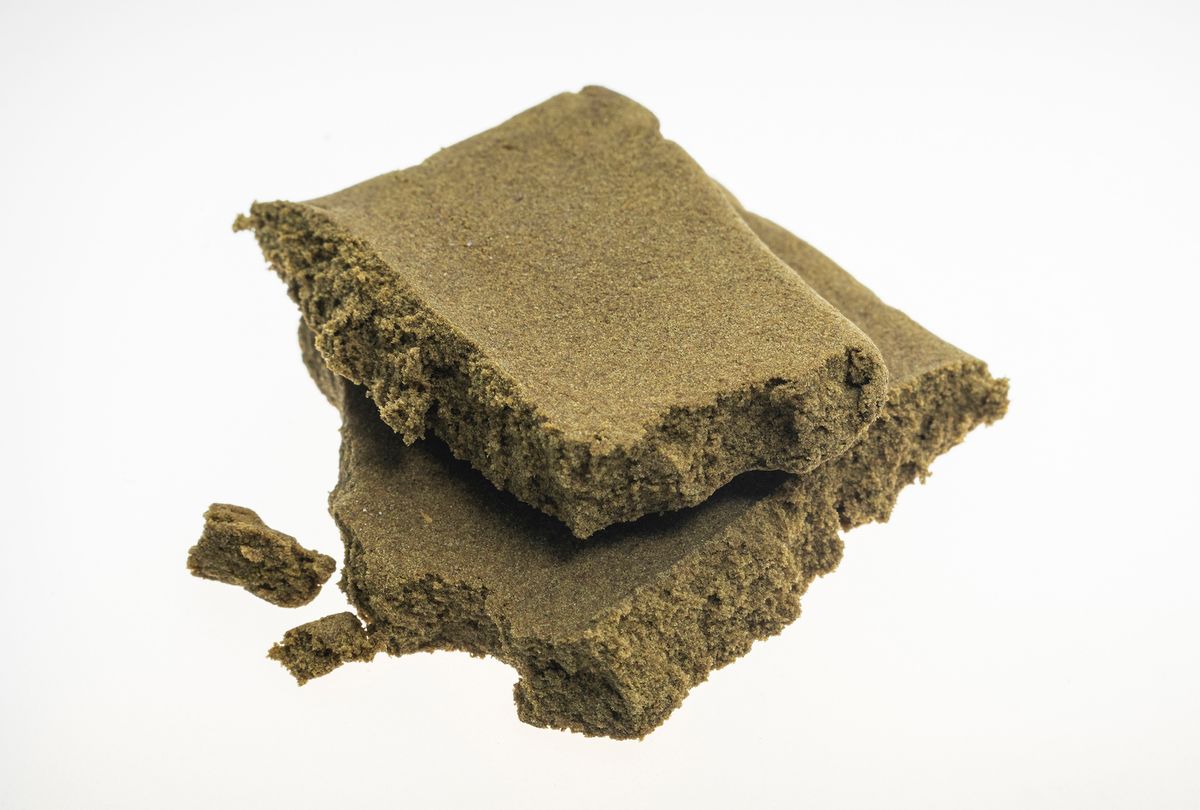Call it what you want, hash, also known as cannabis concentrate, is one of weed's most misunderstood byproducts. Hash has been popular for thousands of years, but I didn't try concentrates for the first time until 2011. Back then, butane hash oil (BHO) was still considered a cutting-edge innovation in the hash space. And I had no idea that hash would change not only the way I engaged with cannabis, but that it would evolve to become the fastest-growing segment in the legal cannabis market a decade down the road and I now consider it my life's mission to educate the masses on hash, which is the purest form of the cannabis experience.
Hash is the OG extract — the holistic essence of the cannabis plant. It's made from plant resin released by cannabis trichomes, parts of the plant that include THC, the drug that gets people "stoned."
While hash in itself is simple and pure, the role of hash in cannabis culture and the legalization movement is a lot more complicated and fascinating.
Riding the BHO Rocket Ship
When I had my first taste of BHO, there was a tiny community of old-school hash heads in the U.S. who were replicating the methods for making charas, handmade concentrate mostly found in India, and other ancient forms of hash found on the "Hippie Trail" or Amsterdam coffee shops. There was also an even smaller community of early adopters who wanted to flip hash on its head, who were obsessed with exploring the full potential of the cannabis plant.
A decade later, we're in a full-blown hash renaissance. The cannabis legalization movement and new developments in both production and consumption tech have transformed the concentrates market — and consumers and patients are the big winners.
Finding Enlightenment, from Michigan's Hash Bash to Frenchy Cannoli
Like the original Renaissance, there were Dark Ages in cannabis. And I'm not talking about just the decades of prohibitionist propaganda, either. In the early 2000s, it wasn't easy to access the equipment (dab rigs, nails, bangers) needed to properly consume hash. It was even harder to find good hash, or information about how to get started.
There was a lot of stigma, too, even within the cannabis community. After the crack and heroin surges of the '80s and '90s, there were a lot of comparisons of early dab rigs and torches to the paraphernalia used to consume stronger drugs.
Today's hash renaissance really has its roots in the cannabis legalization movement that renewed amidst the AIDS epidemic and the War on Drugs. Michigan's Hash Bash, which had been bringing Midwestern stoners together since the 1970s, mostly tapped out during the Reagan administration. By the 1990s, the Hash Bash found new purpose and momentum as NORML, the ACLU, High Times and celebs like Tommy Chong went toe-to-toe with politicians over local Ann Arbor pot laws.
That same decade, the famed underground hash maker Frenchy Cannoli started teaching workshops about ancient hash-making traditions after traveling India and the world for 20 years to learn all he could about hash. In 1994, Hash Queen Mila Jansen invented one of the first modern hash production machines, the Pollinator, from her home in the Netherlands. Two years later, California became the first state to legalize medical cannabis.
Around 2010, when butane hash oil hit the scene, it started a real chase of concentrates. People started to ask themselves: Where else could concentrates go? How could they be better? What are easier ways to make them? Some distinct categories started to emerge. Live resin and cured resin became some of the first new innovations in this market.
The more hash improves, the more approachable it becomes. Ten years after Weezer's 2001 song "Hash Pipe" came out, the hash space was primed for better tech to pop off. People were making resin at home with hair straighteners or spinning bubble hash in old washing machines. But legalization gave entrepreneurs like myself the freedom to explore new ways to engage with this plant.
The next-gen hash heads driving this tech evolution have largely set out to make the hash experience simpler and better. People put away their DIY dab rigs and heat-gun temperature sensors and picked up all-in-one electronic devices. Meanwhile, innovative extractors have filled dispensary shelves with concentrates that are continually pushing the boundaries.
It's been thrilling to watch the hash renaissance unfold from the crest of the wave. Imagine discovering you didn't have to eat the orange peel to eat the orange. That's what more and more cannabis consumers are figuring out when it comes to concentrates.
Industry analyst Headset found that in 2022 concentrates made up 8.3 percen tof the cannabis industry's market share in the U.S., and 3.8 percent in Canada. That same year, live resin hash oil accounted for 34 percent of U.S. concentrate sales, compared to just 5 percent in 2017 — illustrating how fast some of these new categories of hash are skyrocketing in popularity. The global legal concentrates market, valued at $3.94 billion in 2021, is projected to be worth $18.5 billion worldwide by the end of this decade.
Smoking cannabis flower from a pipe, joint or bong is still the most popular consumption method. 4/20 isn't going to get unseated by 7/10 (hash's unofficial holiday) anytime soon. But there is room for both. People are rediscovering the qualities that have given hash both medicinal and spiritual significance since ancient times.
As cannabis culture gets more mainstream and more global, the hash renaissance will only pick up more speed. Keep an eye out for new concentrate formats coming from all over the world, like piattella, which is frozen bubble isolator cold cure. This hash coming out of Spain stopped me in my tracks, as I learned on a recent spin through Barcelona. And I can't wait to taste what's next.



Shares